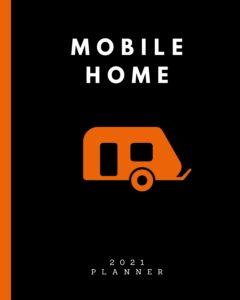Terminology Tuesday – Smoke Detector Verification
(Note: I think it’s important to know the terminology and words used when learning any new business including mobile home investing. I came up with ‘Terminology Tuesday’ as a way to go over the terminology used in the mobile home business. It’s important to know the terminology when talking to people in the business so you’re all on the same page).

When both purchasing and selling mobile homes, it’s best to make sure all of the smoke detectors are working in the home. In fact, it’s usually a requirement from the insurance company that all smoke detectors have been checked and verified before coverage can be placed.
(Note: Before I purchase a mobile home, I make sure the smoke detectors are working on closing day. On closing day, this is when I instruct my insurance company to start coverage).
In general, there are 2 main types of smoke detectors – battery powered and electrical. Usually, electrical type smoke detectors will come pre-installed with the home. However, these types of smoke detectors will only work when there is power. If for some reason there’s a loss of power in the home, then electrical type smoke detectors will no longer function.
Many times (but not all) homeowners do not realize the danger in having only electrical type smoke detectors in their homes. Without power, these type of smoke detectors will not work. Should there ever be an electrical outage, this could be dangerous if a fire occurs.
This is why I go out and make sure there are also battery operated type smoke detectors (with a fresh battery of course!) inside homes with only electrical type smoke detectors. For me personally, I’d rather be safe than sorry.
Is this an added cost? Yes. But, to me – it’s the cost of doing business. I’d rather have peace of mind and be able to sleep at night that the home is well equipped to detect a possible fire than not. But, that’s just me.
As a general rule of thumb, there should be smoke detectors in the kitchen (sometimes 2), hallways near the bedrooms, and living room areas. Before purchasing a mobile home, I always verify the types of smoke detectors in the home as well as whether they are original or added on.
On the other hand, you also want to be aware if there have been any smoke detectors removed or detached from the home. Personally, I’ve run into a few situations where the smoke detectors were removed as some homeowners just did not feel it necessary as they had to keep changing out the batteries.
(Note: This is definitely not a good reason to remove a smoke detector. It amazes me what some people will do just to avoid doing a little work!)
Before purchasing (as well as selling) a mobile home, I highly recommend you make sure you check and verify all smoke detectors are properly working. If the home comes with the electrical type of smoke detectors, be sure there are battery type smoke detectors installed as well. Check the batteries – make sure they are new and in working order.
(Note: In Lonnie’s book, there is a Smoke Detector Verification Form included in the forms section. I highly recommend including this in your paperwork when working with buyers).
To give you an idea of how smoke alarms work as well as how to do a smoke detector verification check, here’s a short video:
I hope this “Terminology Tuesday” post has been helpful and has given you some useful information to use.
Happy investing!
p.s. Feel free to leave comments on any post either here and/or my Facebook Page. Comments are always welcome, thanks for reading!



















2 Responses
I wasn’t aware of some of the info that you wrote about so I want to just say thank you.
Sure, glad you found it useful!
Comments are closed.